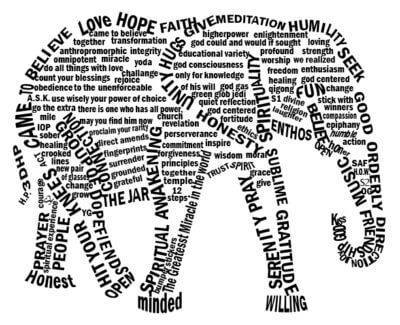
Methamphetamines
Methamphetamines are a very powerful central nervous system stimulant with an extremely high potential for addiction. While some amphetamines can be prescribed by a physician, crystal meth has never been a prescription drug. Unlike other naturally occurring stimulants like caffeine, nicotine and cocaine, all amphetamines are synthetic substances. Methamphetamine is white, odorless, bitter-tasting crystalline powder. Common street names are meth, speed, crystal, and crank.
Methods of Crystal Meth Abuse
Crystal meth comes in many forms and can be smoked, snorted, injected, or orally ingested. The preferred method of crystal meth abuse varies by geographical region and has changed over time. Smoking methamphetamine, which leads to very fast uptake of the drug in the brain, has become more common in recent years, amplifying crystal meth’s addiction potential and adverse health consequences.
Crystal Meth’s Effects on the Body
Crystal meth alters the user’s mood in different ways, depending on how it is taken. Immediately after smoking crystal meth or injecting it intravenously, the user experiences an intense rush or “flash” that lasts only a few minutes and is described as extremely pleasurable. Snorting or oral ingestion of crystal meth produces euphoria – a high but not an intense rush. Snorting crystal meth produces effects within 3 to 5 minutes, and oral ingestion produces effects within 15 to 20 minutes.
As with similar stimulants, crystal meth most often is used in a “binge and crash” pattern. Because the pleasurable effects of crystal meth disappear even before the drug concentration in the blood falls significantly, crystal meth users try to maintain the high by taking more of the drug. In some cases, crystal meth abusers indulge in a form of binging known as a “run,” foregoing food and sleep while continuing abuse for up to several days.
Signs and Symptoms of Crystal Meth Addiction
Crystal meth stimulates the central nervous system, leading to increased wakefulness, alertness, arousal, activity, talkativeness, restlessness, pleasure, and reduces appetite. Larger doses of crystal meth can produce signs and symptoms of irritability, aggressiveness, suspiciousness, anxiety, excitement, auditory hallucination, and paranoid fears. Physically, crystal meth use will dilate the pupils, increase sweating, quicken breathing, raise blood pressure and produce tremors of the hands. Methamphetamines have extremely high potential for psychological dependency and tolerance develops very quickly.
Dangers of Methamphetamine Addiction
Because of the crystal meth’s extremely addictive qualities, it is dangerous even to use once. The user can quickly become addicted to the crystal meth and, because of the fast rise of a tolerance, the user will soon be using large quantities of methamphetamines. Overdose can rapidly be achieved, with marked impairment of judgment, greatly increased suspiciousness, aggressive behavior and serious interruption of normal patterns of eating and sleeping. Signs and symptoms of long-term effects of crystal meth addiction can include memory loss, psychotic behavior, respiratory problems, extreme anorexia, brain damage, stroke, heart damage and death. Over time, methamphetamine users can develop symptoms similar to Parkinson’s disease, a severe movement disorder. Because the body requires calcium to detoxify amphetamines, many users develop trouble with teeth, gums, fingernails, and dry lifeless hair.
Crystal Meth Withdrawal Symptoms
Common crystal meth withdrawal symptoms are depression (with possible suicide potential), excessive need for sleep, fatigue, increased appetite, and a strong craving of the drug. Alone, crystal meth withdrawal symptoms are not life threatening but the severe depression and possible suicidal ideation brought on by crystal meth withdrawal can warrant the need for detoxification in a hospital or detox center.
If you or a loved one might be in need of substance abuse treatment for young people, please do not hesitate to contact us or call The Pathway Program at 877-921-4050.




